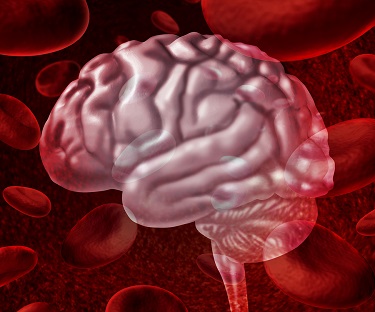There are many forms of brain bleeds, all of which are very serious and require immediate medical attention. Brain bleeds can range from an aneurysm to an epidural hematoma, and all of them can be deadly. Some common signs of potential brain bleeds are sudden extreme headache, double vision, loss of hearing or balance, or numbness in the extremities. If you or any of your loved ones is experiencing any of these conditions, you should seek the advice of your medical professional immediately, as these may be precursors to stroke or death. The brain is such a complicated organ and in situations where there is a brain bleed, seconds can make a difference.
The most common forms of brain bleeds are subdermal hematomas and epidural hematomas. Although these are the most common types of brain bleed, they can also be the deadliest if left untreated. Both epidural and subdermal hematoma involve intracranial bleeding, often the result of a burst aneurysm, can lead to a build-up of fluids in the space between the tissue layers of the brain, which forces the soft tissue of the brain down into the medulla oblongata, which often results in death.
Fortunately, thanks to the advances of modern medicine, brain bleeds have become increasingly treatable. However, sometimes due to the high pressure and high paced environment of many of our nation’s busiest hospitals, some patients do not receive the level of care they need when encountering one of these life-threatening conditions. See, e.g. Cherukuri v. Shalala, 175 F. 3d 446 (U.S. 6th Circuit 1999). Doctors may not be as inclined to deliver adequate care to those patients complaining of these symptoms when these patients are uninsured, potentially prescribing rest and ibuprofen. These patients may then be released and could suffer potentially deadly consequences.
Violation of the EMTALA
When this happens and a doctor knew, or should have known, of the patient’s condition, the Doctor may have violated the EMTALA, the Emergency Medical Treatment & Labor Act, which requires treating physicians to stabilize any patient before releasing or transferring that patient, regardless of cost. Patients rely on the expert advice of medical providers and put full faith and trust in their recommendations. That doctor patient relationship is a sacred bond. Sadly that bond can be violated due to many reasons, some of which related to a bureaucratic system and the business of medicine. Reasons include but are not limited to
- Lack of training or experience in dealing with the particular disease or disorder
- Under staffing
- High patient count
- Reduced funding
- Lack of appropriate sleep
- Pressure from hospital management to treat patients in a certain manner
If you believe that you or a loved one has been a victim of this gross medical oversight, contact the personal injury attorneys of the Dolman Law Group Accident Injury Lawyers, PA at 727-451-6900. We can provide a complete review of the circumstances surrounding your specific potential case.
Dolman Law Group Accident Injury Lawyers, PA
800 North Belcher Road
Clearwater, FL 33765
727-451-6900






